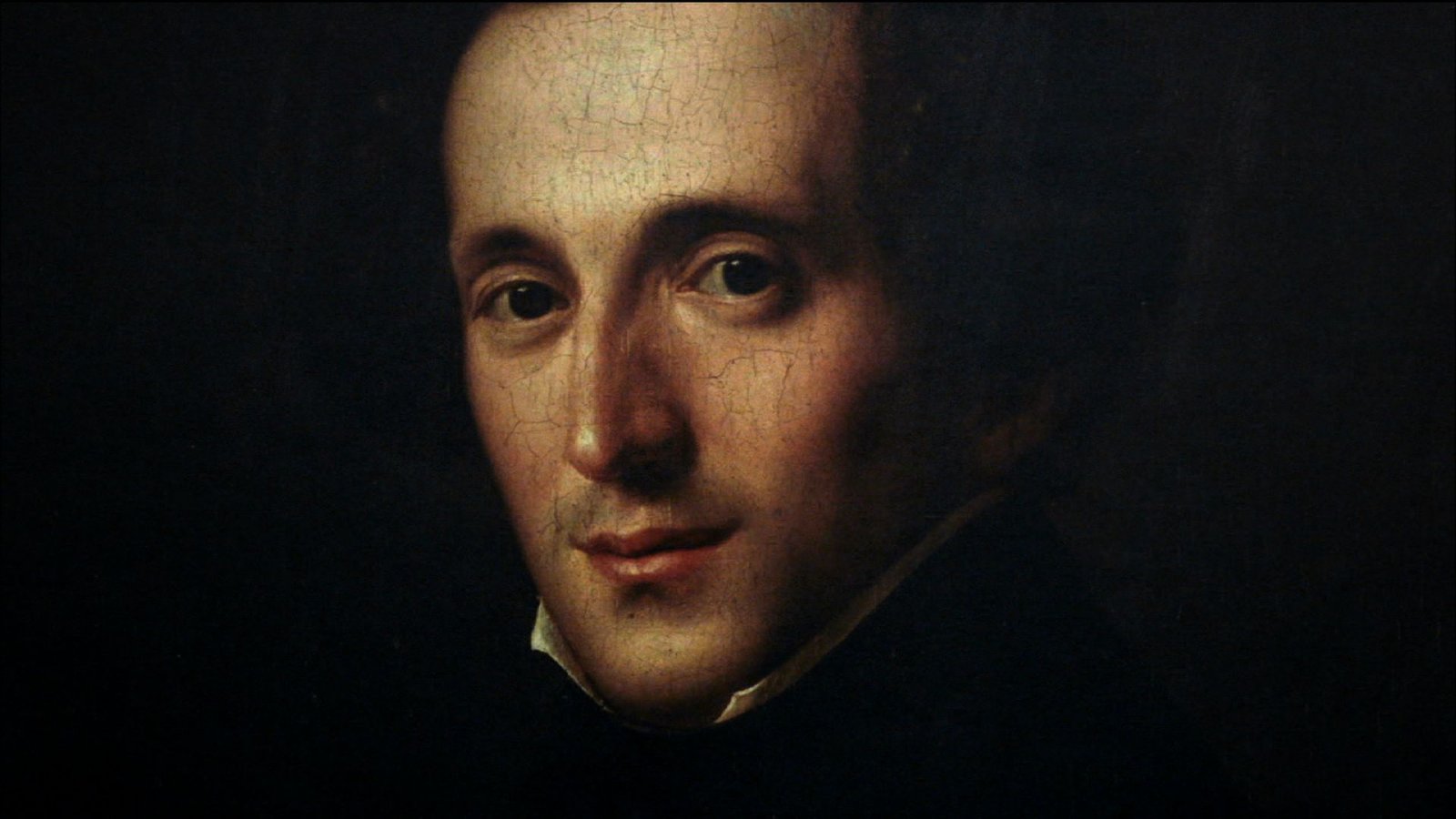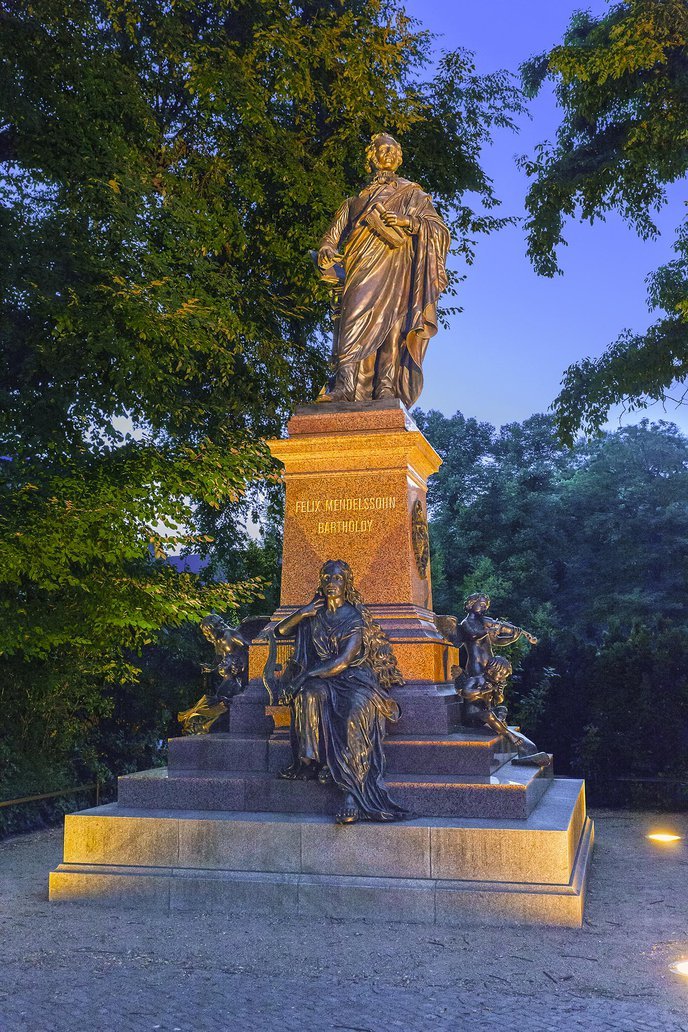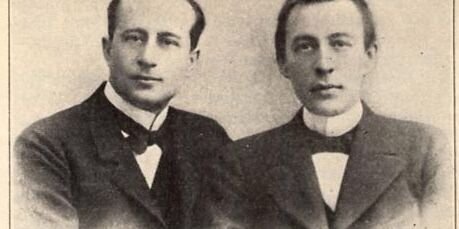【BON音樂】孟德爾頌:第二號交響曲《讚美頌歌》(Lobgesang)
Mendelssohn: Symphony No.2 “Lobgesang”
– 資訊整理共享於網路,一起欣賞音樂與藝術之美 –
蹦藝術 | BONART
簡介
慶祝印刷術發明四百年之浩大作品
孟德爾頌的第2號交響曲《讚美頌歌》為十樂章設計,1840年受到萊比錫市委託,慶祝印刷術發明四百年之委託創作作品。
孟德爾頌豪氣萬千,在交響曲中加入人聲合唱,並且突破四樂章框架,將交響曲加入清唱劇、神劇之表演格局,設計為演出超過一小時之之大型交響曲。
此加入人聲之設計,令人想起貝多芬第九號交響曲《合唱》在最終樂章加入人聲,四海一家且流芳萬世之交響曲最高形式,而孟德爾頌在第二號交響曲變試圖突破交響曲創作框架的大膽嘗試,更令人印象深刻~
「這是一套根據聖經經句寫作交響序曲 – 清唱劇,獨唱、合唱及管弦樂。」 — 孟德爾頌
音樂欣賞與架構一覽
第二號交響曲雖然編號為第二,但其實不是他所寫的第二首交響曲,先前提到孟德爾頌之交響曲編序,存在創作順序與出版順序之差異,如下所示:
孟德爾頌的交響曲創作順序
一般來說作曲家之交響曲編號皆以「寫作順序」排列,偶爾會出現後來雜以「出版順序」於其中。例如海頓和貝多芬的交響曲是按寫作次序排列,而孟德爾頌交響曲編號,則是完全依照出版的次序排列。
孟德爾頌共寫五首交響曲:第一號C小調 op. 11完成於 1824年。1840年他為慶祝顧騰堡(Johannes Gutenberg, 1397 – 1468)發明印刷術四百週年,創作了第二號「讚美頌歌」(Lobgesang)降B大調 op.52。而他的第三號交響曲《蘇格蘭》a小調 op. 56 完成於 1842年。第四號交響曲《義大利》 A大調 op. 90創作於 1833年。第五號交響曲《宗教改革》 D大調 Op. 107 是於 1830年為「奧斯堡信仰告白」(Augsburg Confession)300週年而作。
依照現行編號,順序為:
第一號(1824)
第二號(1840)《讚美頌歌》
第三號(1842)《蘇格蘭》
第四號(1833)《義大利》
第五號(1830)《宗教改革》
例如孟德爾爾頌的最後兩首交響曲,則是因爲他生前一直想再修改第四號「義大利交響曲」,第四號其實是等到他去世之後,於 1851年才被出版商編為第四號交響曲出版。第五號則是因為孟德爾頌生前一直不太滿意「宗教改革交響曲」, 所以並未出版,因此等到第四號交響曲出版後 17年後才付梓 ,稱為第五號交響曲。
如按照作曲年份重新編號,會得到不同之全新結果:
第一號(1824)
第五號(1830)《宗教改革》
第四號(1833)《義大利》
第二號(1840)《讚美頌歌》
第三號(1842)《蘇格蘭》
在作品首演之後,當時有許多樂評認為,孟德爾頌這樣的設計(單樂章三段交響+九樂章合唱、宣敘調和詠歎調)非常不妥;不過作曲家舒曼力排眾議,認為這是孟德爾頌最新鮮、也最迷人的作品。
孟德爾頌:第二號交響曲(總譜版本欣賞)
| Felix Mendelssohn Bartholdy: 2. Sinfonie B-Dur op. 52 ∙ «Lobgesang»
Part.1(三樂章交響) – 00:00 I. Maestoso con moto – Allegro (B-flat major) – 12:15 Allegretto un poco agitato (G minor) – 17:23 Adagio religioso (D major)
Part.2(九樂章 合唱、宣敘調和詠歎調) 24:55 II. Soprano, Chorus: “All men, all things, all that have life and breath (chorus)” Allegro moderato maestoso (B-flat major) – Let everything that has breath praise the Lord (soprano and semi-chorus) 32:09 III. Tenor: “Sing ye Praise (tenor recitative and aria)” Recitativ – Allegro moderato. (G minor) 34:56 IV. Chorus: “All ye that cried unto the Lord (chorus)” A tempo moderato. (G minor) 37:01 V. Sopranos Duet , Chorus: “I waited for the Lord (soprano duet and chorus)” Andante (E-flat major) (II – V 演出時不間斷) 42:42 VI. Soprano, Tenor: “The sorrows of Death (tenor Aria)” Allegro un poco agitato – Allegro assai agitato (C minor) 46:27 VII. Chorus: “The Night is Departing (chorus)” Allegro maestoso e molto vivace. (D major) 51:17 VIII. Chorus: “Let all men praise the Lord (chorale, “Nun danket alle Gott”)” Andante con moto (G major) 56:41 IX. Soprano, Tenor: “My song shall be always Thy Mercy (soprano and tenor duet)” Andante sostenuto assai. (B-flat major) 1:01:15 X. Chorus: “Ye nations, offer to the Lord (chorus)” Allegro non troppo (B-flat major) |
德-英翻譯(取自維基百科)
 German text German text
1. Alles was Odem hat (All men, all things) |
 English translation English translation
1. All men, all things Halleluja, praise the Lord! 你們應當彈琴稱謝主,用十弦瑟歌頌他。 (詩篇33篇2節) And let all flesh praise His Holy Name. 凡有氣息的都要讚美主!哈利路亞讚美主! (詩篇150篇6節) |
| 2. Lobe den Herrn (Praise thou the Lord)
Soprano & Female Choir, text after Psalm 103 Lobe den Herrn, meine Seele, und was in mir ist, seinen heiligen Namen! Lobe den Herrn, meine Seele, und vergiß es nicht, was er dir Gutes getan! |
2. Praise thou the LordPraise the Lord, O my soul,
and all that is within me, praise His Holy Name! Praise the Lord, O my soul, and forget not all His benefits! 說,你們被主救贖,祂救贖脫離禍患、嚴重的苦難、羞恥的綑索、黑暗的俘虜,祂已救贖脫離這些苦楚。你們要稱謝讚美主,因他本為善! (詩篇103篇) |
| 3. Saget es (Sing ye praise)
Tenor recitative, text after Psalm 107 and Psalm 56 Saget es, die ihr erlöst seid durch den Herrn, die er aus der Not errettet hat. Aus schwerer Trübsal, aus Schmach und Banden, die ihr gefangen im Dunkel waret. Alle, die er erlöst hat aus der Not. Saget es! Danket ihm, und rühmet seine Güte!Er zählet unsre Tränen in der Zeit der Not. Er tröstet die Betrübten mit seinem Wort. Saget es! Danket ihm, und rühmet seine Güte! |
3. Sing ye praiseTell it out, that you are redeemed through the Lord,
that He has saved you from your distress. Out of harsh sorrow, out of shame and slavery, which had snared you in darkness. Everything, which He has redeemed from distress. Tell it out! Thank Him, and praise His goodness! 說,你們被主救贖,祂救贖脫離禍患、嚴重的苦難、羞恥的綑索、黑暗的俘虜,祂已救贖脫離這些苦楚。你們要稱謝讚美主,因他本為善! (詩篇107篇) He counts our sorrows in the time of need. 祂在我們流離時數算我們的眼淚。祂在我們受折磨時用話語安慰。 (詩篇56篇) Tell it out! Thank Him, and praise His goodness! 說!你們要稱謝讚美主,因他本為慈愛。 (詩篇56篇) |
| 4. Er zählet unsre Tränen (All ye that cried unto the Lord)
Chorus, text after Psalm 107 and Psalm 56 Sagt es, die ihr erlöset seid, von dem Herrn aus aller Trübsal. Er zählet unsre Tränen. Sagt es, die ihr erlöset seid, von dem Herrn aus aller Trübsal. Er zählet unsre Tränen in der Zeit der Not. |
4. All ye that cried unto the LordDeclare that you are redeemed,
by the Lord from all your troubles. He counts our sorrows. Declare that you are redeemed, by the Lord from all your troubles. He counts our tears in the time of need. 說,你們被主救贖,祂救贖脫離所有的苦楚。祂在我們流離時數算我們的眼淚。 (詩篇107篇, 56篇) |
| 5. Ich harrete des Herrn (I waited for the Lord)
Soprano duet & choir, text after Psalm 40 Ich harrete des Herrn, und er neigte sich zu mir und hörte mein Fleh’n. Wohl dem, der seine Hoffnung setzt auf dem Herrn! Wohl dem, der seine Hoffnung setzt auf ihn! |
5. I waited for the Lord
I waited for the Lord, and He inclined unto me, and heard my voice. Blessed are they whose hope is in the Lord! Blessed are they whose hope is in Him! 我曾耐性等候主;祂垂聽我的呼求。 那在主裡有盼望的是有福的!那在祂裡有盼望的是有福的! (詩篇40) |
| 6. Stricke des Todes (The sorrows of death)
Tenor recitative & aria, text after Psalm 116, Ephesians 5:14, Isaiah 21 Stricke des Todes hatten uns umfangen, und Angst der Hölle hatte uns getroffen, wir wandelten in Finsternis. Er aber spricht: Wache auf, der du schläfst, stehe auf von den Toten, ich will dich erleuchten!Wir riefen in die Finsternis: Hüter, ist die Nacht bald hin? Der Hüter aber sprach: Wenn der Morgen kommt, so wird er doch Nacht sein, wenn ihr schon fraget, so werdet ihr doch… wieder kommen und wieder fragen: Hüter, ist die Nacht bald hin? Die Nacht is vergangen! |
6. The sorrows of death
The sorrows of death had overtaken us, and the fear of Hell had found us, we wandered in darkness. 死亡的繩索纏繞我;陰間的痛苦抓住我;我們在黑暗中行走。 (詩篇116篇) But He said: Awake, you who sleep, 所以主說:你這睡著的人當醒過來,從死裡復活!基督就要光照你了。(出自以弗所書五章14節) Watchman, what of the night? 我們在夜裡被問:守望的啊,夜裡如何?守望的說:早晨將到,黑夜也來。你們若要問就可以問,可以回頭再來。 (出自以賽亞書21章11-12節) |
| 7. Die Nacht ist vergangen (The night is departing)
Chorus, text after Romans 13:12 Die Nacht ist vergangen, der Tag aber herbeigekommen. So laßt uns ablegen die Werke der Finsternis, und anlegen die Waffen des Lichts und ergreifen die Waffen des Lichts. |
7. The night is departingThe night is far gone,
day is at hand. Let us cast off the works of darkness, and put on the armor of light. 黑夜已深,白晝將近;我們就當脫去暗昧的行為,穿上光明的盔甲,帶上光明的兵器。(出自羅馬書13章12節) |
| 8. Nun danket alle Gott (Lett all men praise the Lord)
Choral, text after the christian hymn “Nun danket alle Gott” by Martin Rinkart Nun danket alle Gott, mit Herzen, Mund und Händen. Der sich in aller Not will gnädig zu uns wenden, der so viel Gutes tut; von Kindesbeinen an, uns hielt in seiner Hut, und allen wohl getan.Lob, Ehr’ und Preis sie Gott, dem Vater und dem Sohne. Und seinem heil’gen Geist im höchsten Himmelsthrone. Lob dem dreiein’gen Geist, der Nacht und Dunkel schied von Licht und Morgenroth. Ihm danket unser Lied. |
8. Let all men praise the Lord
Now thank we all our God, with hearts, mind and hands. He turns mercifully to us in all our needs. He is so good to us; keeps us in His protection, from our childhood on, and does all things for us. 現在讓我們一起用心、用手、用頌讚感謝主,祂在我們困苦中施慈愛,祂極其美善,祂從我們孩時就保護我們,善待我們。 Praise, honour and glory be to God, the Father and the Son. And to His Holy Spirit on most high heaven’s throne. Praise to the triune Spirit, Who parts night and darkness from light and dawn. Our song in thanks to Him. 讚美、尊崇及榮耀在高天寶座上的父、子及聖靈。讚美三一神,祂從夜晚及黑暗分出黎明及光亮,以我們的歌聲頌讚祂。
|
| 9. Drum sing ich mit meinem Liede (My song shall be always thy mercy)
Soprano Tenor Duet, text after Psalm 28, Psalm 31 and Psalm 103 Drum sing’ ich mit meinem Liede ewig, dein Lob, du treuer Gott. Und danke dir für alles Gute, das du an mir getan!Und wandel ich in Nacht und tiefem Dunkel und die Feinde umher stellen mir nach; so rufe ich an den Namen des Herrn, und er errettet mich nach seinen Güte. Drum sing’ ich mit meinem Liede ewig, dein Lob, du treuer Gott! Und wandel ich in Nacht, so ruf’ ich deinen Namen an, ewig, du treuer Gott! |
9. My song shall be always of thy mercy
So I will ever sing my song to your praise, O very God. And thank you for all the good things which you have done for me! 所以,我永遠吟唱讚美祢的詩歌,信實的主!並感謝祢賜我一切的恩惠。(詩篇28篇) And though I wander in the night and deep darkness, and my enemies gather around me; 縱然我在深夜中行走且仇敵環繞在身邊。 (詩篇31篇) so I call upon the Name of the Lord, and He saves me of His goodness. 我將呼喊主的名,而祂將以仁慈拯救我。縱然我在深夜中行走且仇敵環繞在身邊。 (詩篇103篇) |
| 10. Ihr Völker, bringet her dem Herrn Ehre und Macht (Ye nations, offer to the Lord)
Chorus, text after Psalm 96, Psalm 105 and Psalm 150 Ihr Völker! Bringet her dem Herrn Ehre und Macht! Ihr Könige! Bringet her dem Herrn Ehre und Macht! Der himmel bringe her dem Herrn Ehre und Macht! Die Erde bringe her dem Herrn Ehre und Macht! Alles danke dem Herrn!Danket dem Herrn und rühmt seinen Namen Und preiset seine Herrlichkeit!Alles was Odem hat, lobe den Herrn! Halleluja, lobe den Herrn! |
10. Ye nations, offer to the Lord
O ye people! Bring unto the Lord power and might! O ye kings! Bring unto the Lord power and might!! 萬民啊,你們要將榮耀、能力歸給主!君王啊,你們要將榮耀、能力歸給主!高天將充滿主的榮耀與能力!讓地上充滿主的榮耀與能力!(詩篇96篇) Let the heavens bring unto the Lord power and might! (歷代志上十六章8-10節) Let everything that has breath praise the Lord! 凡有氣息的都要讚美主!哈利路亞讚美主! (詩篇150篇6節) |
孟德爾頌:第二號交響曲(音樂會版本欣賞)
| Felix Mendelssohn Bartholdy: 2. Sinfonie B-Dur op. 52 ∙ «Lobgesang»
Part.1(三樂章交響) – 00:00 I. Sinfonia: Maestoso con moto – Allegro – 11:44 Allegretto un poco agitato – 17:45 Adagio religioso
Part.2(九樂章 合唱、宣敘調和詠歎調) 24:04 II. Soprano, Chorus: “All men, all things, all that have life and breath (chorus)” Allegro moderato maestoso (B-flat major) 28:45 – Let everything that has breath praise the Lord (soprano and semi-chorus) 30:37 III. Tenor: “Sing ye Praise (tenor recitative and aria)” Recitativ – Allegro moderato. (G minor) 33:31 IV. Chorus: “All ye that cried unto the Lord (chorus)” A tempo moderato. (G minor) 35:14 V. Sopranos Duet , Chorus: “I waited for the Lord (soprano duet and chorus)” Andante (E-flat major) (II – V 演出時不間斷) 39:35 VI. Soprano, Tenor: “The sorrows of Death (tenor Aria)” Allegro un poco agitato – Allegro assai agitato (C minor) 44:24 VII. Chorus: “The Night is Departing (chorus)” Allegro maestoso e molto vivace. (D major) 48:53 VIII. Chorus: “Let all men praise the Lord (chorale, “Nun danket alle Gott”)” Andante con moto (G major) 53:06 IX. Soprano, Tenor: “My song shall be always Thy Mercy (soprano and tenor duet)” Andante sostenuto assai. (B-flat major) 57:24 X. Chorus: “Ye nations, offer to the Lord (chorus)” Allegro non troppo (B-flat major) |
夏伊指揮萊比錫布商大廈
| 0:00 Felix Mendelssohn Bartholdy – “Lobgesang” in B flat major, Op. 52 (1840 premiere version)
Con moto maestoso – Allegro vivace Allegretto un poco agitato Adagio religioso I. Chor: Alles, was Odem hat II. Arie (Sopran) und Frauenchor: Lobe den Herrn III. Recitativo (Tenor): Saget es, die ihr erlöst seid IV. Chor: Sagt es, die ihr erlöset seid V. Duett (Sopran 1, 2): Ich harrete des Herrn VI. Arie (Tenor): Stricke des Todes — Und ich stand auf VII. Chor: Die Nacht ist vergangen VIII. Choral: Nun danket alle Gott IX. Arie (Tenor): Drum sing’ ich mit meinem Liede X. Schlusschor: Ihr Völker, bringet her dem Herrn Ehre und Macht! |
【補充資料】孟德爾頌之家(萊比錫)
開卷蹦藝術.享受美好閱讀時光
☕️一杯咖啡.一點心意.支持蹦藝術☕️
各類合作提案,聯繫方式:
*手機:0917.670.518
*Line:https://line.me/ti/p/LB1ro0P0AU
*E-mail:jenpin888@gmail.com
更多音樂新知
2024-07-25
【BON音樂】蹦藝術X大人社團 -浪漫巨人-拉赫曼尼諾夫的鋼琴協奏之旅(二)第一號鋼琴協奏曲與前奏曲
這堂課林仁斌老師將以拉赫曼尼諾夫完成於1892年,修改於1917年的第一號鋼琴協
2024-07-18
【BON音樂】蹦藝術X大人社團 -浪漫巨人-拉赫曼尼諾夫的鋼琴協奏之旅(一)立足現代,心在浪漫的音樂巨人:拉赫曼尼諾夫的生平
拉赫曼尼諾夫身兼作曲家、鋼琴家與指揮家,集所有音樂才華於一身,是公認全方位的音樂
2024-07-11
【BON音樂】蹦藝術X上海商業儲蓄銀行「豐富人生 X 音樂天地」公益講座:獵劇本高手、獵旋律高手、獵豔高手」:普契尼生平與他的音樂
在全世界十大上演率最高歌劇裡,普契尼就佔了三齣。他筆下細膩的愛情與詠嘆,流淌下無






